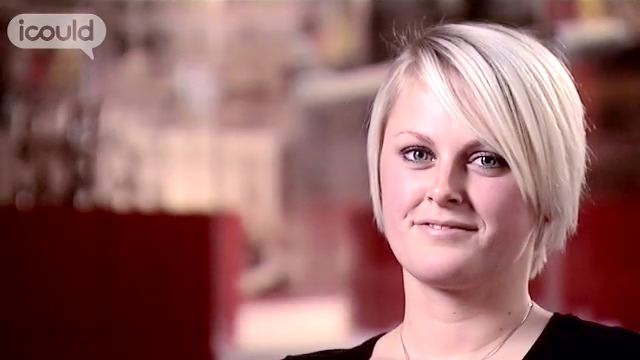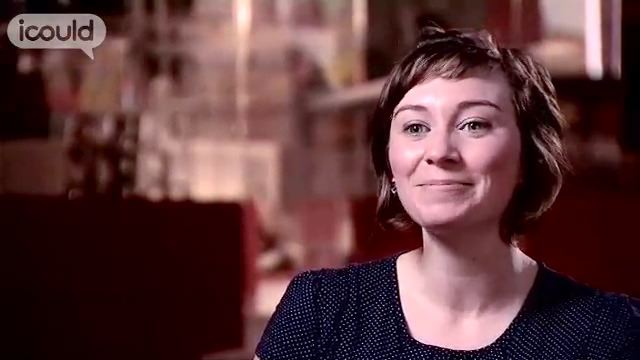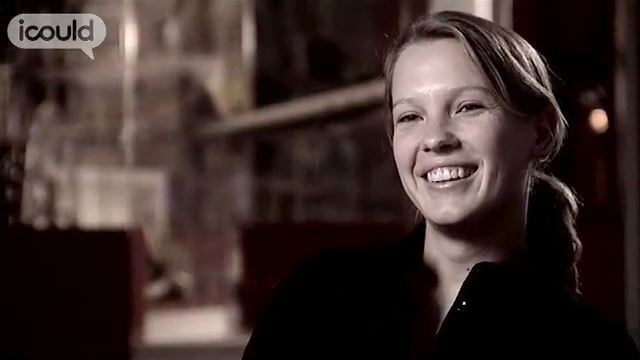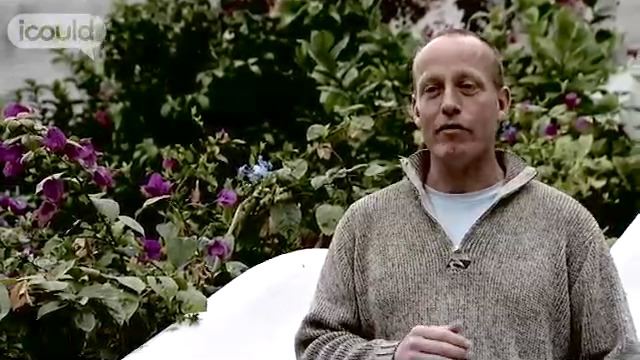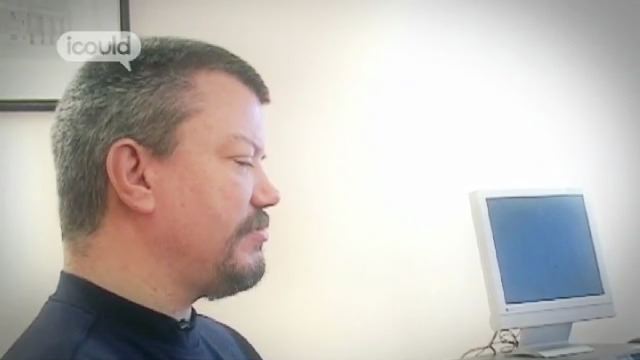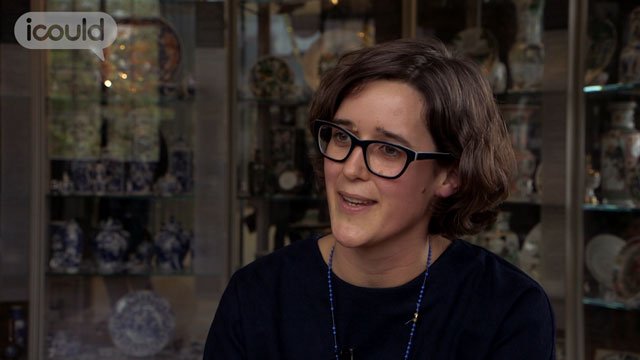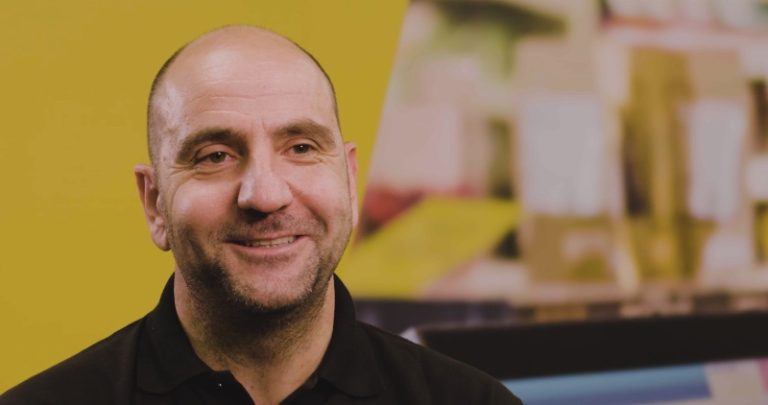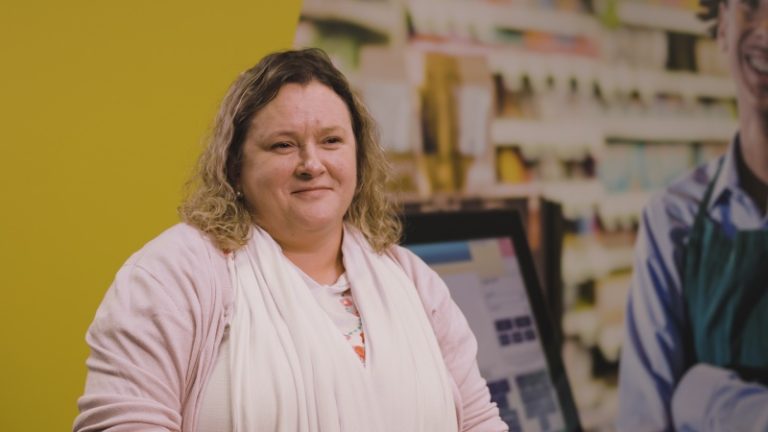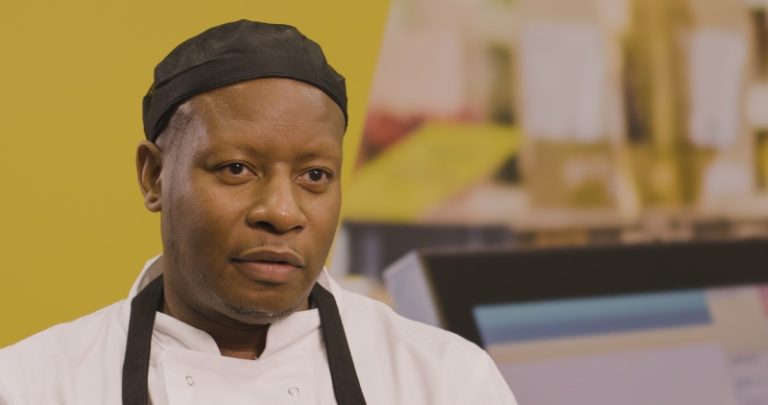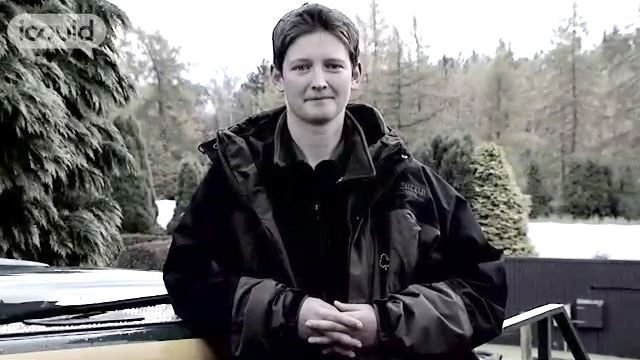Associate Curator
The Science Museum
Katie M
00:00:02 My name’s Katie M and I’m the Associate Curator of Medicine at the Science Museum. It’s a pretty varied job but essentially I look after a big collection of objects that relate to the history of medicine. And so, we collect those objects and then we use those objects to tell really interesting stories through exhibitions and web projects. I really enjoy learning. So, I’m, today I’ve been learning about iron lungs. I went to talk to somebody who, who works with iron lungs. And then on another day you would just be learning something completely different about maybe laboratory medicine or about ancient Greek medicine. So, I mean, I just love the fact that my job’s stimulating and I just learn something new on a day-to-day basis.
00:00:39 I always enjoyed going to museums as a child and I, I’ve always enjoyed history growing up but I mean, I probably didn’t even know there was such a thing as a curator probably until I went to university. Originally I was really interested in being an archaeologist or an Egyptologist at school, I remember at junior school I was fascinated with the Egyptians and I wanted to teach Egyptology. And then at senior school it probably turned more into wanting to be an archaeologist.
00:01:05 When I went to university I actually did a course in archaeology and I did a three week dig where I camped and dug away in the mud for three weeks and decided I really didn’t enjoy it because it was boring and muddy. But, but after that I still really enjoy history and objects and so by about the third term in my uni-, like, like third year of my university I was sort really panicky about what the hell am I going to with my life. So, then I started going, well, I, I, I visit galleries and museums all the time, perhaps there’s, you know, an opportunity there. So, then I just did lots of work experience after that.
00:01:40 And so, once I was in at university I volunteered at the local, at the local museum. It was, it was useful and it did, did make me think that actually I would really like to work in this environment. Literally, as soon as I came home after graduation I, I applied for local work experience in museums again. The British Empire & Commonwealth Museum had opened up so I volunteered to help with their secondary source library because they were still setting up at that point.
00:02:05 So, it was just moving books around and, and cataloguing them. So, it sounds pretty boring but actually the people were really nice. And actually it was really good experience in terms of using databases and learning how to manage, you know, manage objects. I actually started at the Science Museum in 2003. And I just started as a gallery assistant. It was quite a boring job just being on gallery permanently and asking visitor questions but equally it was really good experience. The people were wonderful. You meet visitors and you really see how visitors engage with an exhibition.
00:02:35 You got to learn what was, you know, what works on display, what didn’t work on display and I’ve always found that really useful experience ever since being in the museum. I would say my job defines who I am to a great extent. I mean, I’m very, I’m very proud of my job. I like the fact that I haven’t, I haven’t really gone for a conventional, more, more conventional career. So, I do think it defines me, it defines who I am in the sense that I enjoy learning, I enjoy learning new stuff. So, it does define who I am.
00:03:08 Looking at my career in ten, ten years time is something that scares me quite a lot because there’s not that many museums that specialise in history of medicine. So, where do I go from here? It’s, it’s quite a scary question to ask myself. I mean, in some ways I’d quite like to work at either a local museum or something where I have much more contact with the local, you know, like with visitors.
00:03:33 But equally, I mean, there’s other things where now I’m doing research in history of medicine that perhaps I’ll want to do a PhD and perhaps that will lead somewhere else in terms of teaching or something academic or perhaps I’ll want to do something completely different in ten years time. I’m quite somebody who’s quite into whims. So, I might want to be a medical journalist in ten years time. Who knows? ENDS
Katie M loves learning and has always enjoyed history and visiting museums. As Assistant Curator of Medicine at The Science Museum she uses medical objects to tell interesting stories through exhibitions and web projects. Put off archaeology by the mud, she volunteered for work experience with a vengeance to achieve her goal of working in a museum. Katie sees numerous possibilities for her career development in the next few years.
More information about Chartered architectural technologists, planning officers and consultants
The UK average salary is £29,813
There are 37.5 hours in the average working week
The UK workforce is 47% female and 53% male
Future employment
- Analyses information to establish the nature, extent, growth rate and likely development requirements of the area
- Examines and evaluates development proposals, consults statutory bodies and other interested parties to ensure that local interests are catered for and recommends acceptance, modification or rejection drafts and presents graphic and narrative plans affecting the use of public and private land, housing and transport facilities
- Develops construction project briefs and design programmes and advises clients on methods project procurement, environmental, regulatory, legal and contractual issues and assesses environmental impact
- Monitors compliance with design, statutory, and professional requirements, administers contracts and certification, carries out design stage risk assessments and manages health and safety
- Evaluates and advises on refurbishment, recycling and deconstruction of buildings
- Prepares designs, building plans and drawings for use by contracts and investigates proposed design with regard to practicality, cost and use
- Surveys land uses and prepares report for planning authority and issues development permits as authorised
- Liaises with engineers and building contractors regarding technical construction problems and attends site meetings, as the lead consultant or as part of the team.
- Provides expert advice on issues related to planning and development, including practical, regulatory, legal and statutory matters
- Chartered architectural technologists specialise in design, underpinned by building science, engineering and technology applied to architecture within projects.
